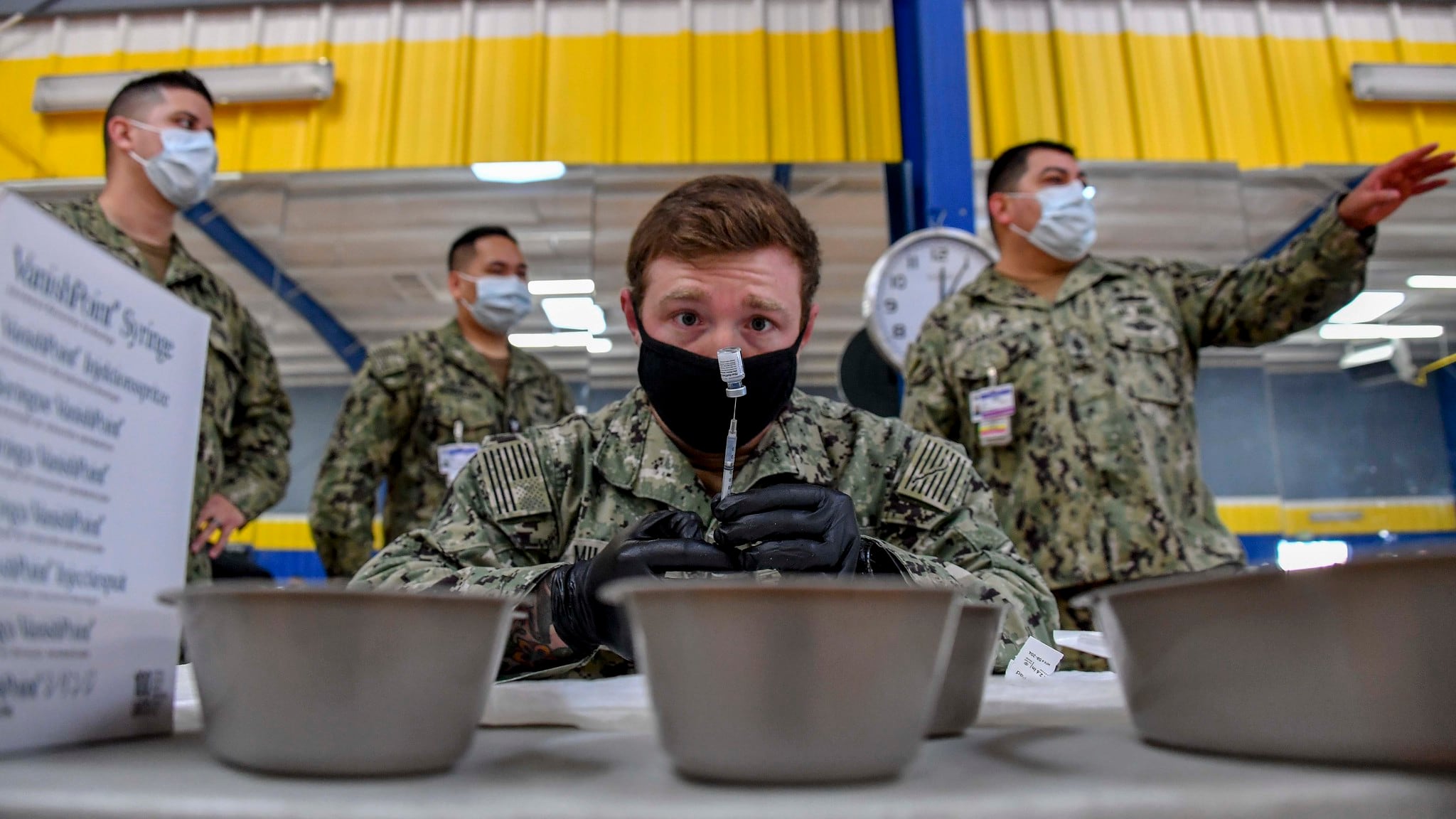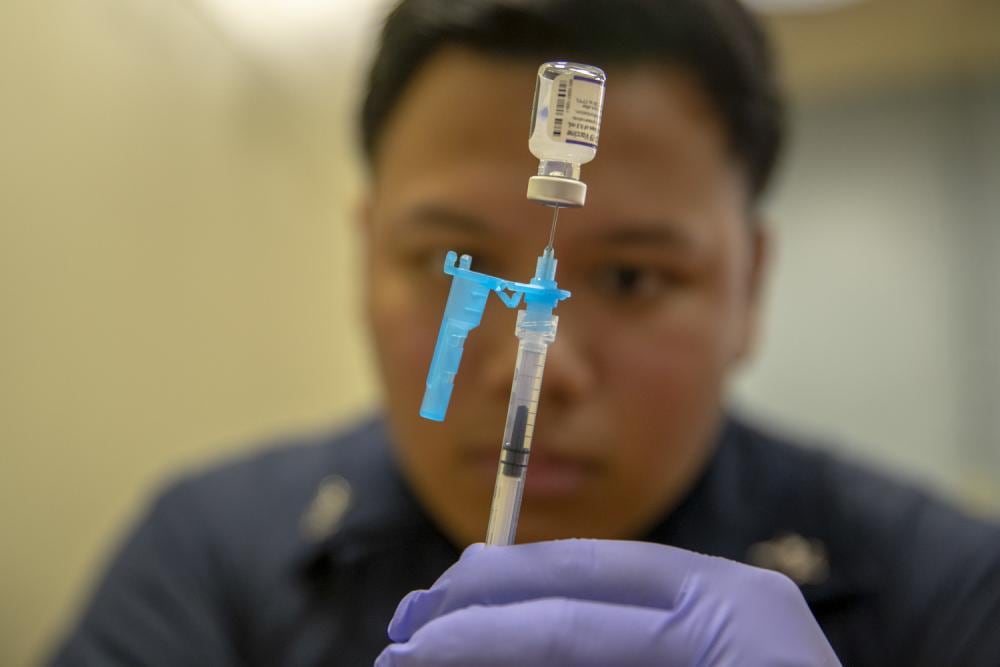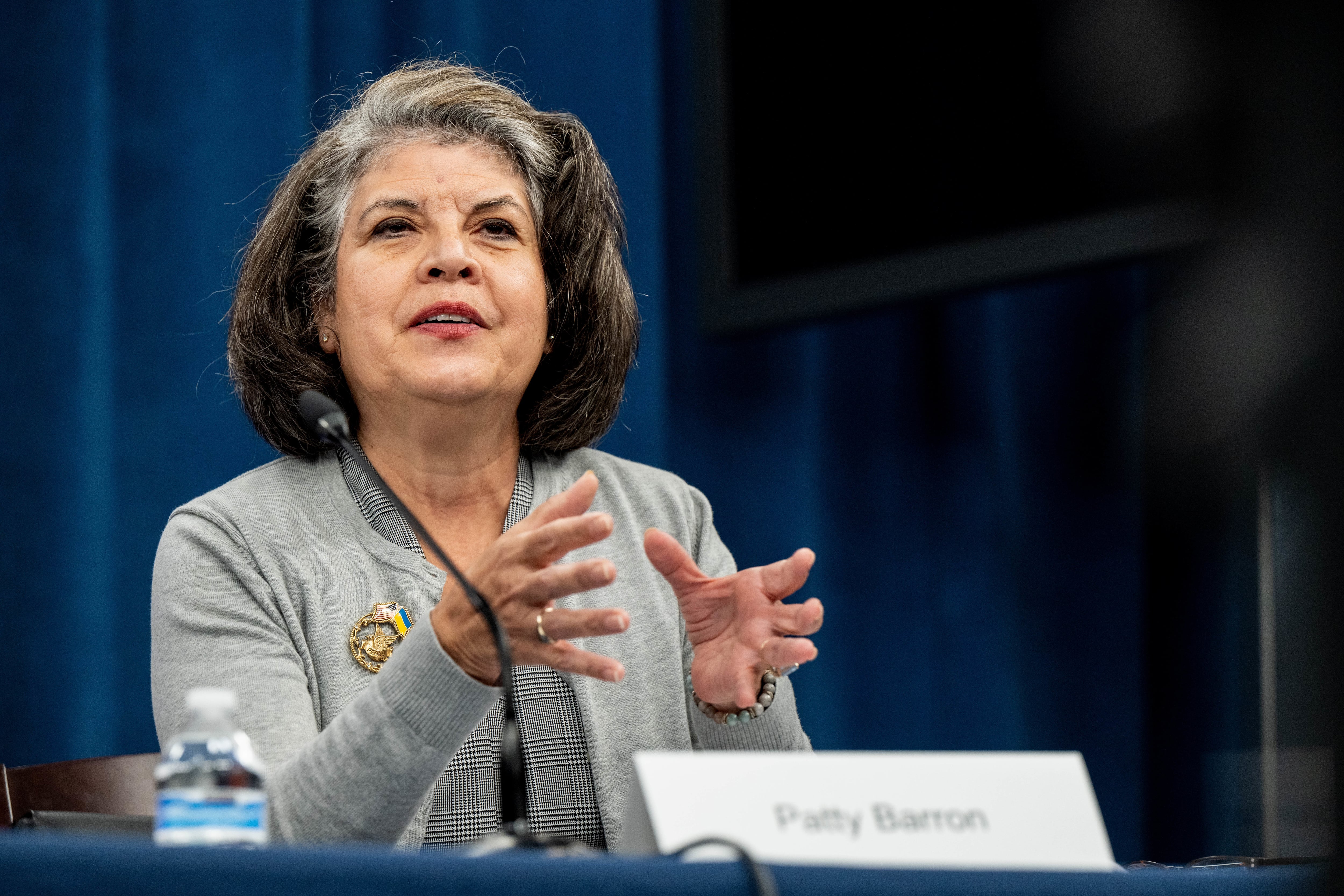The Defense Department’s inspector general has concerns that service authorities rushed through COVID-19 vaccine exemption requests, issuing blanket denials without reviewing each case individually, according to a memo to Defense Secretary Lloyd Austin in June.
The letter, from acting DoD Inspector General Sean O’Donnell, warns Austin that early findings of a review of the waiver process showed “generalized assessments rather than the individualized assessment that is required by Federal law and DoD and Military service policies.”
“The denial memorandums we reviewed generally did not reflect an individualized analysis, demonstrating that the Senior Military Official considered the full range of facts and circumstances relevant to the particular religious accommodation request,” O’Donnell added.
The Pentagon’s IG hotline received dozens of complaints about the waiver process, he said, prompting the IG to announce a review in February.
RELATED

The services have reported thousands of waiver requests for service members seeking to avoid the COVID-19 vaccination, which they are entitled to do for medical, religious or other administrative reasons.
While many administrative or medical waivers have been granted, which can include health conditions or an imminent departure from the military, religious exemptions have been in the single digits.
“Additionally, the volume and rate at which decisions were made to deny requests is concerning, “O’Donnell wrote. “The appeal authorities of the Services we reviewed indicated that an average of 50 denials per day were processed over a 90-day period.”
That would average out to about 12 minutes per request, assuming a 10-hour day with no breaks, he added.
Hundreds of service members have been discharged for refusing the COVID-19 vaccine since last winter, when service deadlines began. Troops who have requested waivers cannot be discharged while their waivers, or their denial appeals, are in process.
Meghann Myers is the Pentagon bureau chief at Military Times. She covers operations, policy, personnel, leadership and other issues affecting service members.





